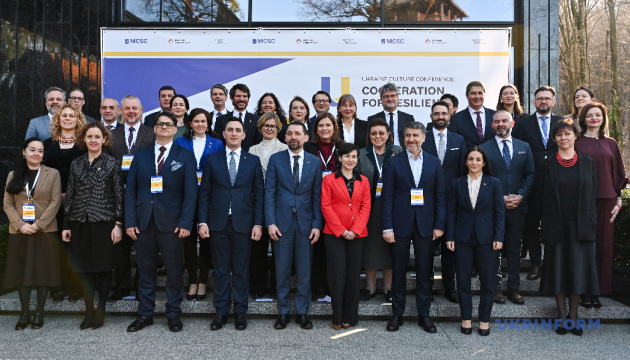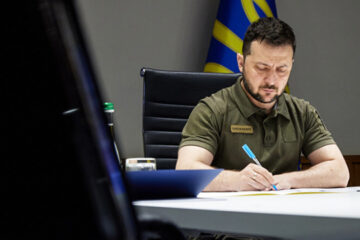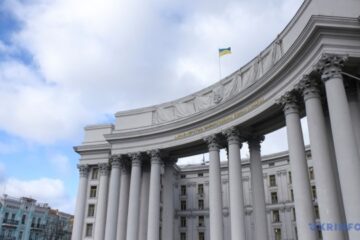The conference in Uzhhorod has provided a platform for discussing the preservation of cultural heritage under strikes from the aggressor country
Ukraine is part of Europe — spiritually and semantically. Ukrainians are part of the European community, and Ukraine’s cultural domain belongs to that of Europe. This domain, unfortunately, is currently being destroyed by barbaric attacks that do not carry any meaning, except for hatred of freedom and beauty. An appropriate goal should be to force the aggressor to peace through strength. On the way to achieving this goal, the main thing for us and our partners is to ensure all-around resilience in various domains of our lives, which was described in detail by the President of Ukraine Volodymyr Zelensky in his address to the Parliament of Ukraine in December 2024.
In pursuance of the action plan suggested by the President of Ukraine, the Ministry of Culture and Strategic Communications of Ukraine, on February 1, 2025, brought together representatives of 28 delegations of partner countries, the European Commission, and UNESCO in Uzhhorod to join their efforts to preserve European cultural heritage on Ukraine’s territory.
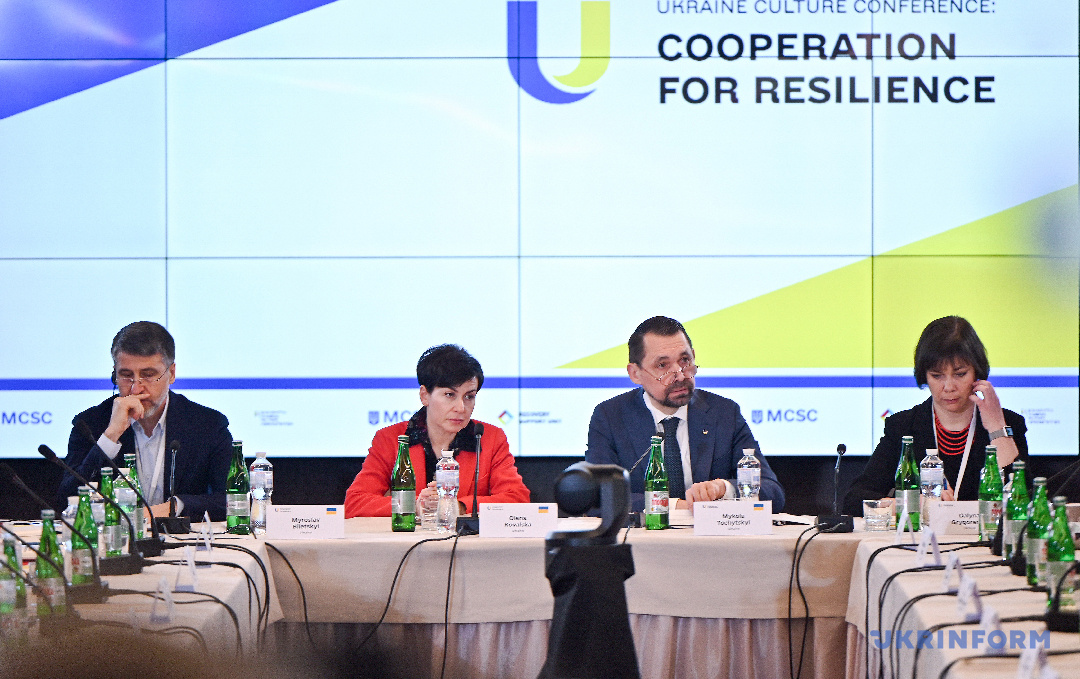
Organizing large-scale international events is a painstaking job that requires making provision for every fine detail. This job is particularly difficult to do in a warring country, where every action must be planned for with due account taken of security restrictions. Therefore, I would like, in the first place, to express my deep appreciation to my team, to our partners who helped organizing the event, to all our guests and friends of Ukraine, thanks to whom this meeting was held in a warm, sincere and result-oriented atmosphere.
We were glad to see counterparts from many different countries of the world united for one common goal – that of safeguarding and supporting Ukrainian culture. This conference provided an example of how international collaboration can make the cultural sector stronger.
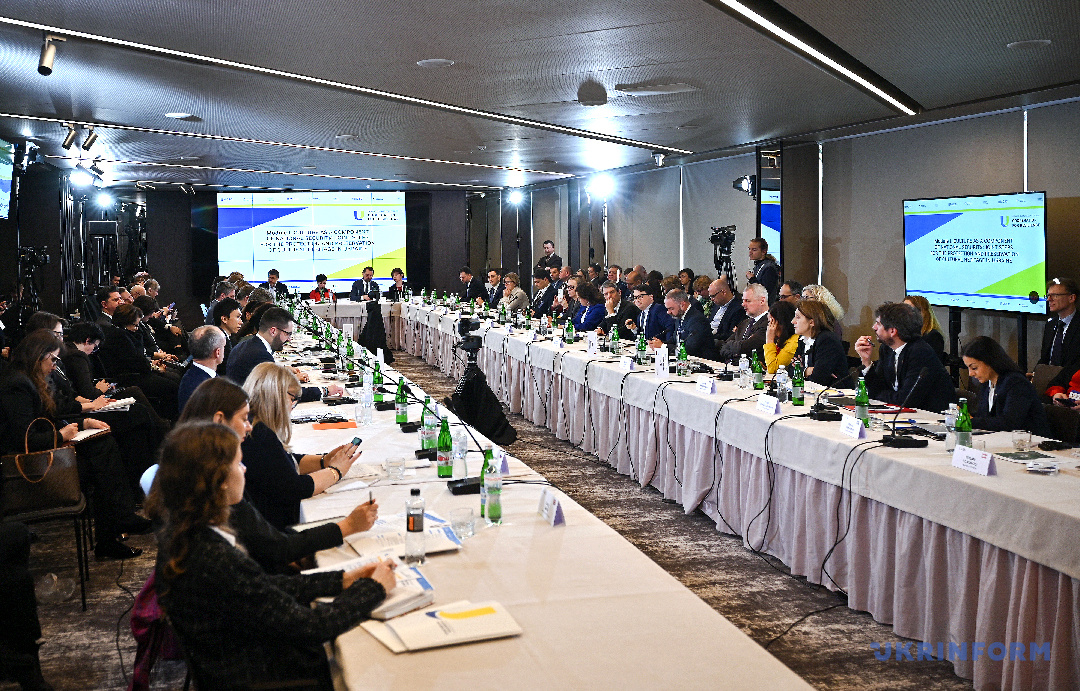
One of the key theses promoted at the event was that “in times of war, culture needs protection as a component to national security”. Russia, by its aggressive actions, weaponizes every sphere of humanitarian sector. The Kremlin leadership continues to attack history and culture among other targets.
The conference in Uzhhorod provided a platform for discussing the preservation of cultural heritage under strikes from the aggressor. Speakers at the event emphasized that this is an essential condition for securing the identity and sustainability of not just the Ukrainian political nation, but also a hallmark of resistance and inspiration for all who believe in the freedom and future of Ukraine.
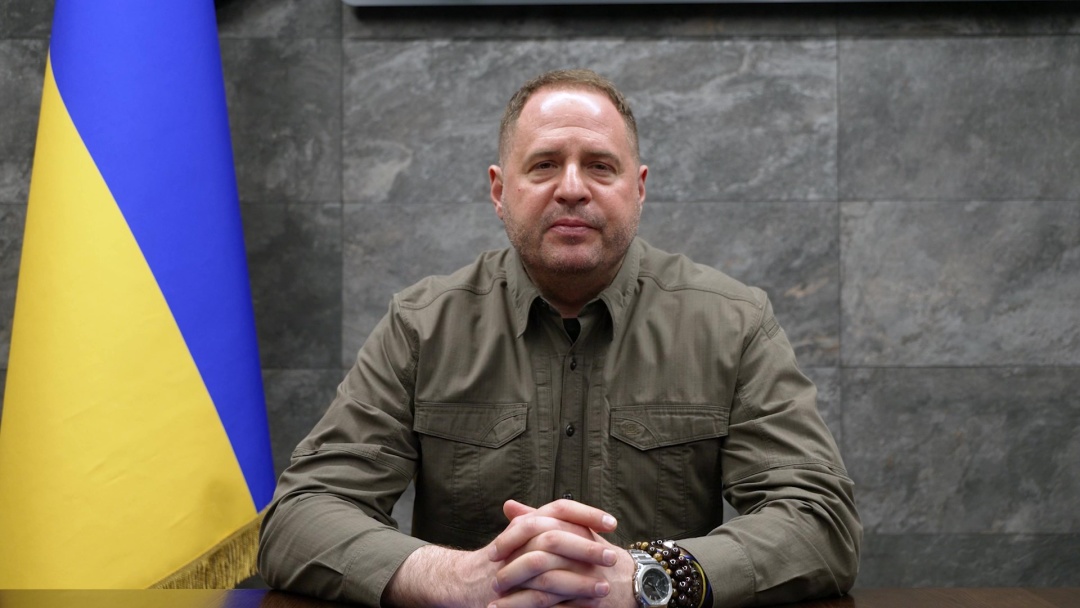
Andrii Yermak
The Head of the Office of the President of Ukraine, Andrii Yermak, who spoke via a video link, raised the need to increase sanctions pressure on representatives of the aggressor state who justify Russian war crimes. The assimilative genocide being waged against the Ukrainian people must be given proper legal assessment and proper response under international law.
The EU Commissioner for Intergenerational Justice, Youth, Culture and Sport, Glenn Micallef responded to our calls for the consolidation of partners’ efforts to protect and restore Ukrainian cultural heritage, by stating that “The European Commission will provide assistance to Ukraine as much as it takes. Europe will stand with you, because we understand that you are fighting for our freedom every day. The future of Ukraine is in the European Union. Ukraine is Europe.”
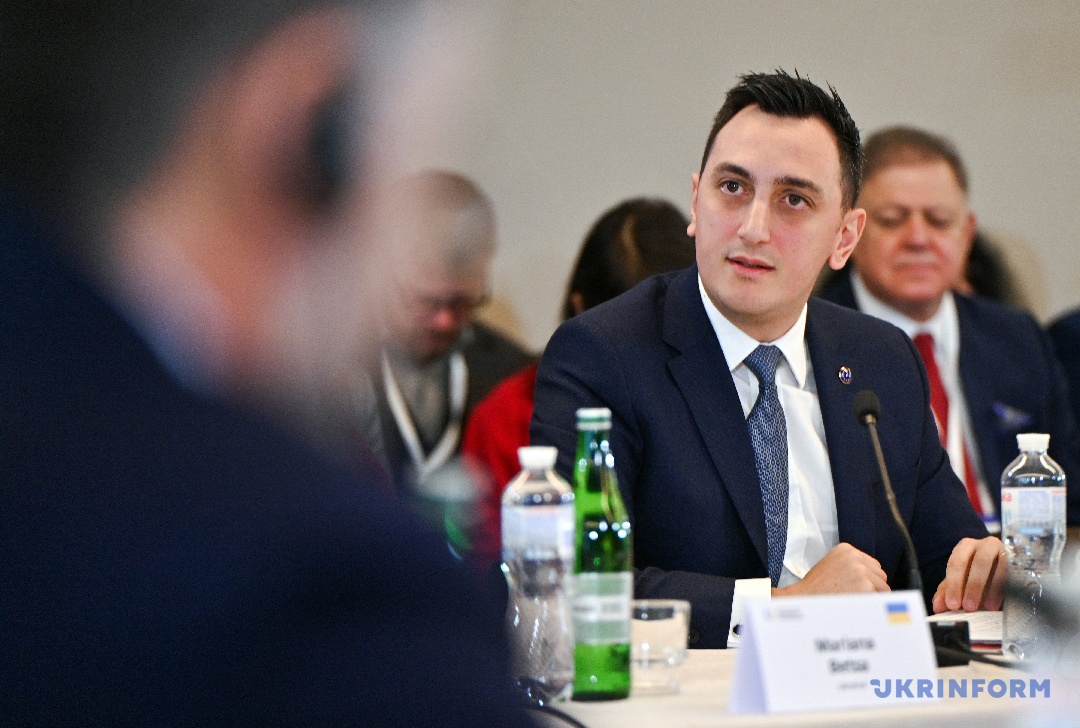
The speech by Andrii Lyubka, a writer, poet, and volunteer from Transcarpathia, who spoke about the heroism of the brilliant artist and philosopher Maksym Plesha, was particularly impressive to the audience. Maksym abandoned his creative career to volunteer into the defense forces, and died defending his people and identity.
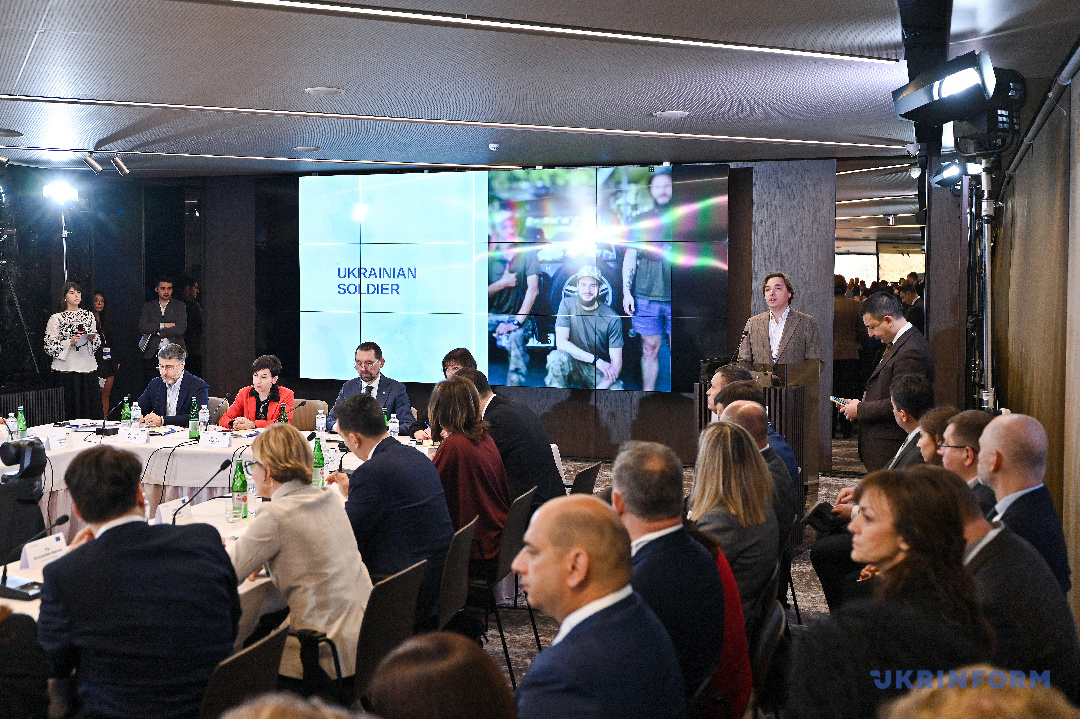
The event opened up new opportunities for sharing experience, ideas and innovative approaches to preserving cultural heritage. Not just the challenges of the present came under discussion, but also the potential for future development of the cultural sector. The participants shared successful examples of international experiences adaptable to Ukrainian circumstances, and vowed to be ready for new collaborative projects.
The conference ended up with the Declaration on Strengthening the Resilience of the Cultural Sector in Ukraine. This document outlines common principles and priorities that should provide the foundation for further actions by state institutions, cultural workers, and international partners. We are confident that the Declaration will be a significant step forward towards joining efforts to preserve and develop our cultural heritage.
Citing violations of the 1954 Hague Convention and the 1972 UNESCO Convention for the Protection of Cultural and Natural Heritage, the Declaration strongly condemns Russia’s illegal and unprovoked war against Ukraine, which violates international law and results in the destruction of civilian infrastructure, including historic cities, cultural monuments and museums. Twenty-two countries have already joined in the Declaration, and this process will continue.
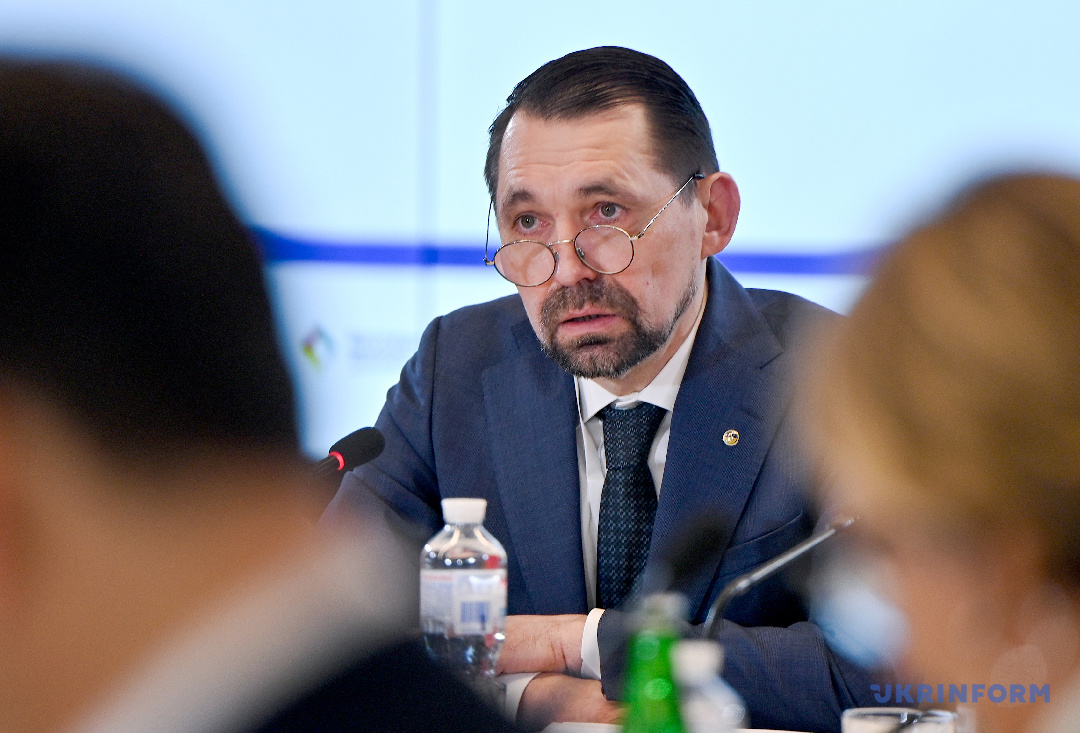
Special focus was put on future financial support for cultural initiatives. It is planned to create a Ukrainian Heritage Foundation, which will assist in supporting and securing cultural projects. The foundation will provide a practical tool for mobilizing resources and securing long-standing support for our artists and institutions of culture.
This needs to be done faster, considering that more than 1,250 cultural heritage sites have been damaged or reduced to ruins over the time since Russia launched its all-out armed attack at Ukraine on February 24, 2022. All of the sites should be included in the Register of Damage for Ukraine, whose launch and operation is welcomed in the Declaration among other things. The Foundation will provide support for museums, cultural monuments, social infrastructure and intangible cultural heritage.
The Declaration calls for the creation of an international coalition to combat the illicit trafficking of Ukrainian cultural assets, and to ensure the development of mechanisms to prevent the theft, smuggling and sale of Ukrainian cultural artifacts. As part of this effort, the participating countries are planning imposing sanctions on individuals and organizations involved in illegal archaeological excavations, theft and looting of cultural heritage, vandalism and other offences prohibited under international humanitarian law.
In pursuance of this initiative, the Platform for Cultural Recovery will expand its work – a group of experts who will draft recommendations for integrating cultural heritage protection into the overall recovery effort based on the basic principles of a high-quality Baukultur – a comprehensive concept of urban planning and architecture that encompasses the whole building stock in its relation to society, including built heritage (immovable objects as monuments and built archaeological sites), gardens and open landscapes as well as today’s building and planning for the future.
I am extremely grateful to everyone who attended the conference. Your ideas, proactive attitude, and willingness for collaborative action have been really inspiring. We are optimistic that this event will give a strong push for further initiatives to ensure Ukrainian culture is not just preserved, but prosper.
The Uzhhorod conference marks just the beginning of a great project.
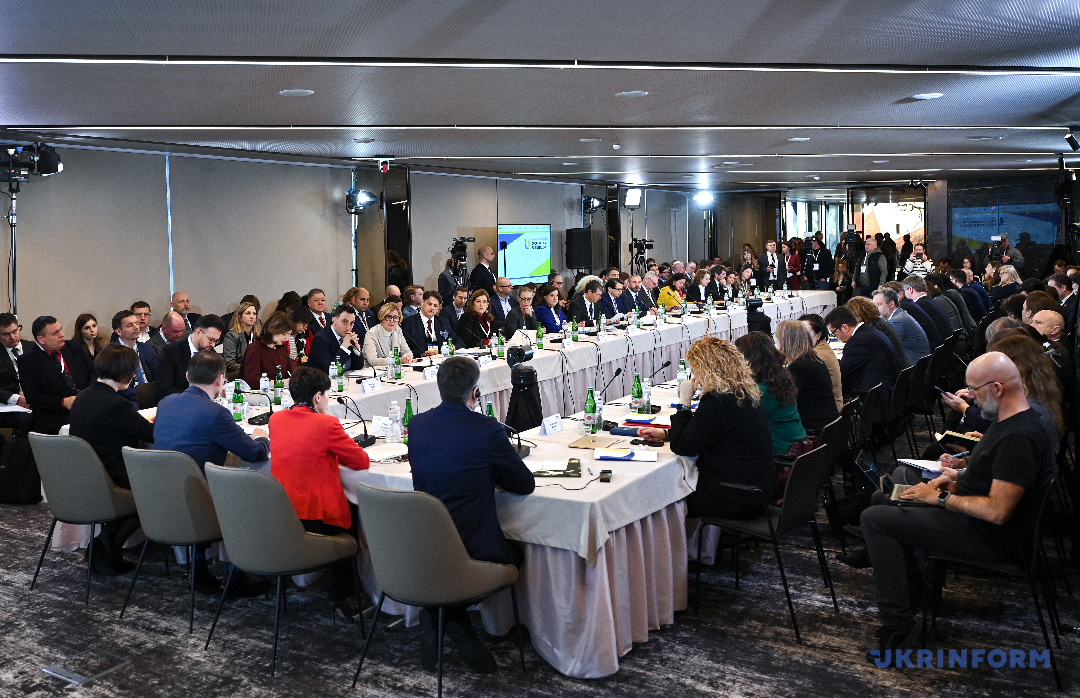
The next step should be taken at the Ukraine Recovery Conference set for July in Rome. Until then, there is time for homework on the implementation of the ideas and statements voiced at Uzhhorod. With joint efforts, we can make sure Ukraine’s cultural heritage not only endures difficult times, but flourishes, inspiring future generations.
Thank you all for your participation and support. Together we are writing a history of resilience, inspiration and mutual assistance, because culture is our soul, our strength and our path to a better future.
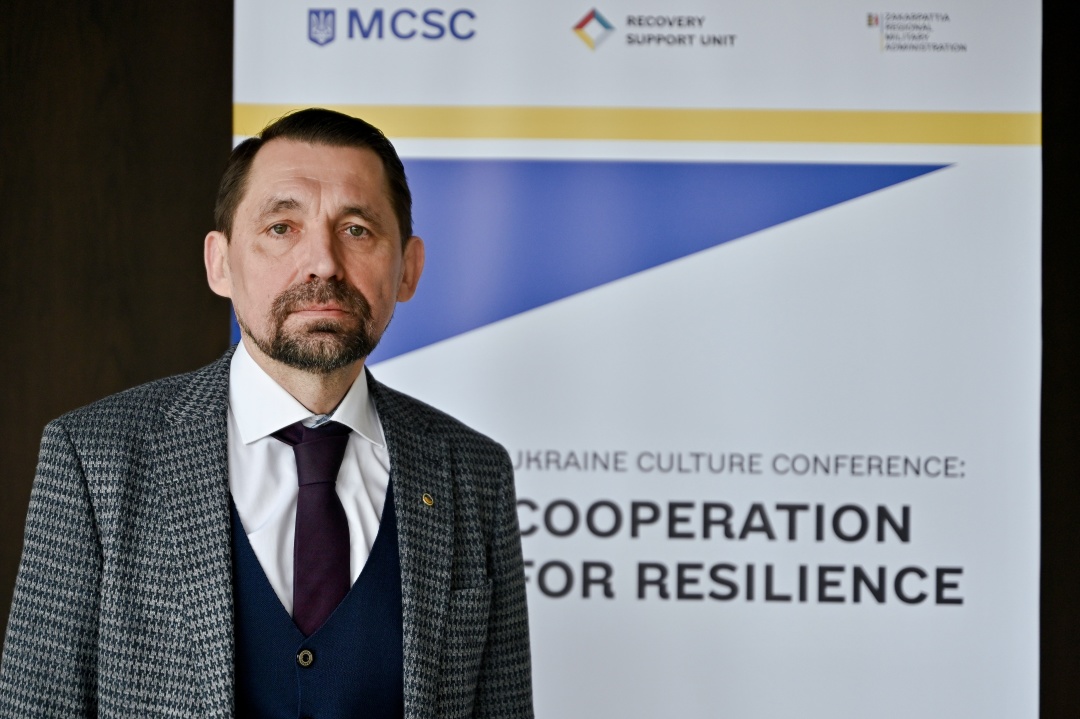
Ministry of Culture and Strategic Communications
The opinions expressed by the author may not coincide with those of the editorial staff

